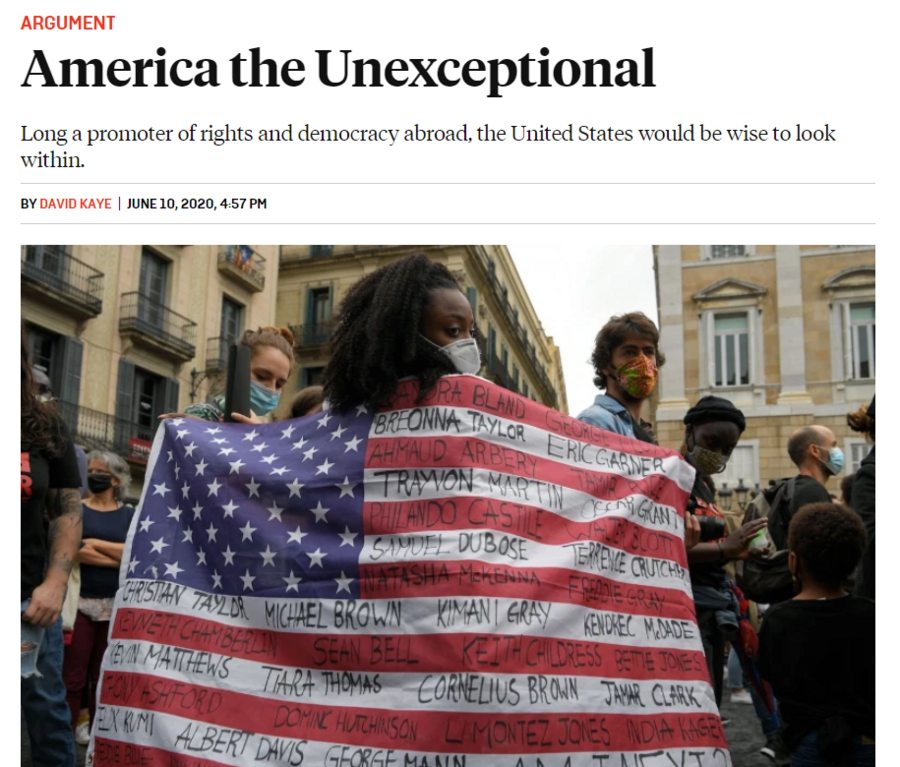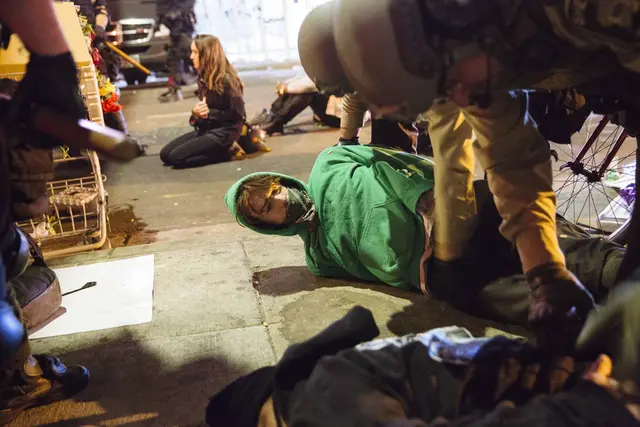Riot police officers arrest a small group of protesters at a memorial to George Floyd in Minneapolis, the United States, May 30, 2020. (Photo by Angus Alexander/Xinhua)
"Despite its rhetoric and its occasional leadership, the United States has long had its foreign-policy foot inside the human rights system and its domestic one firmly outside."
WASHINGTON, June 13 (Xinhua) -- The phrase "human rights" in U.S. policy has always referred to what others violate, but rarely comes back to what the U.S. government is obligated to protect at home, said an opinion piece published recently by the U.S. magazine Foreign Policy.
The article, titled "America the Unexceptional," was written by David Kaye, a law professor at the University of California Irvine and the U.N. special rapporteur on freedom of opinion and expression.

Screenshot of the opinion piece "America the Unexceptional," published on June 10, 2020 by the U.S. magazine Foreign Policy. (Xinhua)
"Despite its rhetoric and its occasional leadership, the United States has long had its foreign-policy foot inside the human rights system and its domestic one firmly outside," Kaye noted in the commentary. "Treaties and other international obligations that it calls upon others to keep are not even enforceable within the United States itself."
He also pointed out that racism and white supremacy drove the American refusal to enforce human rights at home, and that "legacy of hypocrisy shapes human rights policy today."
The Black Lives Matter protesters have demonstrated what the United States should be, the professor said, calling on Washington to meet a commitment to human rights at home to be a global voice for human rights.
 简体中文
简体中文

